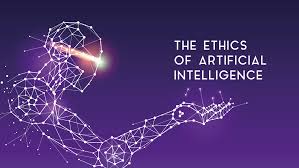Ethics in AI
Moral Implications of AI Decisions
AI (Artificial Intelligence) is rapidly evolving and changing our lives. It's used in everything from facial recognition to self-driving cars. But as AI gets more powerful, we need to think about the ethical implications of its decisions.
Ethics in AI: Exploring the Moral Implications of AI Decisions
AI (Artificial Intelligence) is rapidly evolving and changing our lives. It's used in everything from facial recognition to self-driving cars. But as AI gets more powerful, we need to think about the ethical implications of its decisions.
Ethics in AI
Ethics in AI is about making sure AI systems are developed and used responsibly. This means considering the potential impact of AI on people, society, and the environment. It's about ensuring that AI is fair, unbiased, transparent, and accountable.
Why is Ethics in AI Important?
- Fairness and Non-discrimination: AI systems should not discriminate against people based on their race, gender, religion, or other protected characteristics.
- Transparency and Explainability: We should understand how AI systems make their decisions. This helps us build trust and identify any biases.
- Accountability: Someone should be responsible for the actions of AI systems, especially if they make harmful decisions.
- Privacy and Security: AI systems should respect people's privacy and data security.
Moral Implications of AI Decisions
AI systems can make complex decisions that have real-world consequences. It's important to consider the moral implications of these decisions.
Examples of Moral Dilemmas
- Self-driving cars: What should a self-driving car do in a situation where it has to choose between hitting a pedestrian or swerving and potentially harming the passengers?
- Healthcare AI: Should AI be used to decide who gets access to limited healthcare resources?
- Criminal Justice System: Can AI systems be used to predict crime rates and target individuals for increased surveillance?
These are just a few examples of the moral dilemmas that AI raises. We need to have open discussions about these issues and develop ethical guidelines for AI development and use.
Summary
- AI raises ethical concerns about fairness, transparency, accountability, privacy, and security.
- AI decisions can have significant moral implications, especially in situations where life-or-death choices need to be made.
- It's crucial to have open discussions and develop ethical guidelines to ensure AI is used responsibly.
